“We just sort of grew apart”, “The lack of intimacy really bothered me”, “Every time we spoke, we fought.” Everyone has their own reasons for why long-distance relationships don’t work, but most of the time, they’re usually vague and don’t offer much insight.
We all know that a lack of physical closeness gets in the way, but we also know that’s not the only problem. To be fair, most couples who experience a split in an LDR might be so confused about what went wrong, that even they may not have a clear picture.
Whether you’ve just started your LDR or you’re trying to find reasons to stay in one, it’s a good idea to know the issues that can end up being the reason for a long-distance couple’s downfall. Shazia Saleem (Masters in Psychology), who specializes in separation and divorce counseling, helps us understand why and how the distance actually gets in the way.
What Is The Success Rate Of Long-Distance Relationships?
Table of Contents
The research is varied. However, most return the same answer: More people are able to handle long-distance relationships than you’d think. In fact, according to a study, about 60% of couples successfully navigate the murky waters of being miles away from each other.
On the flip side, however, that statistic also means that 40% of couples cannot handle holding a long-distance relationship. An academic study states that about 37% of long-distance couples break up after becoming geographically close. Who would’ve thought?
Other studies claim that love can fade away in such dynamics in about 4.5 months. So, people break up less than half a year after starting an LDR. Surely a bunch of studies can’t define the future of your dynamic, but it gives us an idea of the success rate of such relationships. That raises the question, why don’t long-distance relationships work out?
13 Real Reasons Why Long-Distance Relationships Don’t Work
“The communication gap, in my opinion, is one of the biggest factors as to why long-distance relationships don’t work. It just isn’t practical to eliminate the possibility of a communication gap affecting things,” says Shazia.
Of course, there’s also the possibility of the dwindling emotional connection, the lack of support, the lack of trust, and the worry about a partner cheating. “I was always worried about her cheating, and how we might grow apart. Eventually, both those things happened. So yeah, I’d say it’s disloyalty and people changing,” said this Reddit user, when asked what causes such relationships to end. However, cheating is a common concern in any romantic relationship. Let’s get into a bit more detail about these usual suspects, and how they can cause irreversible damage.
1. The one you can’t avoid: communication issues
Shazia breaks down exactly why so many couples face the communication gap issue, and how it manifests itself: “Communication gaps arise in LDRs for many reasons. There’s the time difference, the vastly different schedules, and the different priorities. When a person travels to a new place, all of a sudden, they’ve got to deal with figuring out their bare necessities. They’re figuring out how they’re going to manage their food and shelter. As a result, the relationship might take a backseat for a little while.
“In the midst of all this, the person who is staying behind begins to value the relationship even more and starts prioritizing it above all else. They’re still in their comfort zone, waiting for a call or a text that their partner may not be able to cater to. As a result, a mismatch occurs.
“In such situations, empathy plays a huge role. The person who has stayed behind doesn’t empathize with the challenges the other partner goes through, and the person who moved becomes too busy with their new life to empathize and see how their partner might feel alone and lonely. That’s when you often see a lack of trust in the relationship, growing resentment, and an inability to communicate effectively.”
2. A lack of physical intimacy
“The bottom line is, physical intimacy with your partner is a basic need for many people. When a long time goes by and there’s no real scope of meeting the other person, people tend to resolve to other means to have physical relations elsewhere,” says Shazia.
We took to Reddit to ask why long-distance relationships don’t work out, and most answers seemed to revolve around how a lack of physical closeness ends up being the primary reason for frustration, and eventually a breakup.
According to a study, 66% of those interviewed stated that a lack of physical closeness was the major reason for things falling apart. It’s not like a lack of physical intimacy always destroys a long-distance relationship, but it usually gets in the way, which causes further problems. Moreover, it’s not always that simple to just go and meet your partner, especially if they live halfway across the globe. This brings us to our next problem: money.
Related Reading: 100+ Long-Distance Texts To Melt BAE’s Heart
3. Financial issues preventing couples from meeting
You’re out there in the UK, studying away for your Ph.D., while your partner works in a Big Four consulting firm in Japan. It’s not like you don’t want to see them, and it’s not like there’s a lack of effort, just that money doesn’t grow on trees.
Meeting every two months is often what keeps couples in such dynamics going strong. However, when you consider complications like distance, financial restraints, corporate commitments, or other such factors, it’s clear to see that meeting each other becomes a matter of privilege. Not being able to meet for an extended period of time, unsurprisingly, ends up being the biggest relationship problem.
4. Trust issues
“I love him, but I can’t do long distance. I’m always worried about what he’s doing at any given time of day, and when he doesn’t reply for hours on end, when he’s hanging out with people I’ve never heard of before or seen before, the anxiety it gives me is just not worth it. What good is it to stay in something that’s only making me doubt that someone’s being unfaithful to me?” says Linda, 24, a reader from Massachusetts.
It’s important to note that not hearing from your partner is not intrinsically an LDR issue. Partners in regular relationships also differ in the frequency of contact they need from each other, and insecure partners go through trust issues regarding each other’s loyalty – no matter the proximity to each other.
“One of the signs your long-distance relationship is not working is when you or your partner are always in doubt. At first, people develop self-doubt when they say things like, “Am I capable of keeping this going?” Then, doubt creeps into the relationship. All of a sudden, they start seeing social media posts from their partner with people they don’t know, and trust issues invariably cause problems. That lingering doubt always ends up haunting one person,” says Shazia.
5. Not expecting the troubles an LDR brings with it
How do you really know if an LDR is right for you? It’s a tough question to answer, and most couples are unable to find an appropriate answer. Moreover, most don’t even anticipate the number of difficulties an LDR is going to bring with it. A study claims that 70% of long-distance relationships ended because of unexpected changes in circumstances.
“One tries to reach out more than the other, and the other often fails to meet expectations because they’re busy with the new challenges they have around them. Both of them then start to feel that the other isn’t understanding their situation. The person left behind feels alone and lonely, and it eventually bleeds into the conversations through a harsh tone or a rude remark, which in turn causes more arguments,” says Shazia.
6. More fights, less conflict resolution
“Without a doubt, it was the lack of sex that led to the constant arguing and bickering. Couple that with our incapability to ever resolve a fight over a call and you have yourself a volatile mix. We lasted 7 months,” said a Reddit user.
Not only do the fights get worse, it often seems like there’s no end in sight for the arguments. “The communication gap, once again, is to blame for this phenomenon,” says Shazia. “Because of uncontrollable factors like time difference, negative emotional states, and financial conditions, both partners may already be emotionally exhausted.
“Plus, when an LDR couple talks only about negative emotions like the challenges they’re facing, the hurt they’re going through, they become very problem-focused. And rarely do they discuss something positive. Emotional exhaustion leads to resentment, which leads to fights, and the communication gap triggers the lack of conflict resolution. It’s one of the biggest factors as to why long-distance relationships don’t work,” she adds.
7. A lack of effort
As is the case with regular relationships, not showing any sustained effort toward a romantic partner will send the whole thing in a downward spiral. Despite the challenges both partners are facing, the effort put into the dynamic mustn’t suffer to the point where conversations rarely happen anymore.
To handle a long-distance relationship, you probably need more patience, effort, empathy, and love than you would in a regular dynamic. But since that involves a lot of planning, sacrifices, and a lot of time spent on virtual dates, couples often fall short.

8. Drifting apart
“Due to the myriad of external factors involved that make it impossible to be aware of what’s happening in your partner’s life any given minute of the day, you can end up feeling alienated from them.
“You cannot constantly track where the other person is (and you shouldn’t), but in a long-distance, you might find partners disappearing for long periods of time. They’re unable to talk about many things that might be happening around them and in their life, which becomes a point of contention. People thus lose the emotional connection, they develop a lack of trust, and feel distant from their partners,” says Shazia.
Related Reading: 9 Best Long-Distance Couple Apps To Download NOW!
9. No end date in sight
Picture this. Not only do you both live halfway across the world, which makes traveling to each other extremely difficult (read: expensive), you’re not even sure when you’ll be able to see each other again. This multiplies all the existing problems we have on our hands: a lack of physical intimacy which now seems indefinite, communication issues that get worse, trust issues that never get resolved, and a dwindling emotional connection.
10. Not planning how you’re going to keep things afloat
Even if there’s true love in a long-distance relationship, love can fade away. By not accounting for just how difficult this phase is going to be, by not accounting for how and when you’re both going to talk to each other, you’re basically setting yourself up for failure.
Even if you don’t have a plan about when you’re going to meet or when the distance is going to end, all the problems you have will seem to go on forever. Unhealthy long-distance relationships are often the ones that don’t have a game plan set up, or at least a basic idea of it.
11. Not being able to deal with personal issues
“Individual challenges that both partners face can overwhelm them. Not everyone handles difficulty efficiently, and the anger, frustration, and anxiety of dealing with life’s challenges affects the relationship,” says Shazia. “A relationship requires a lot of time, effort, and money. When both people are too busy fighting their own demons, they’ll find it difficult to balance and are left with no choice but to give up on the relationship.”
If you notice that you and your partner are incapable of giving each other the minimum amount of time you expect from each other, it’s definitely one of the signs your long-distance relationship is not working.
12. Not being on the same page regarding communication styles
Communication is key to all successful relationships, but what’s equally important is to set a framework for communication and manage expectations. If you expect prompt replies and daily calls, but your partner likes to take their time and do things at their own pace, this can become a point of contention.
This is frankly an issue in non-LDR dynamics and friendships too. Unless this mindset of entitlement toward another person’s mental resources and time is unlearned, a lack of trust and a waning emotional connection will always tarnish any relationship. If you want to get to a point where an LDR is right for you, practice empathy and patience in ‘all’ your relationships and friendships, so that you can learn how to manage relationship expectations too.
13. A change in values, goals, and personality
A new environment, a new location, new friends, a new job, a new university, a new country can gradually change a person’s whole perspective on life. Even though there may be true love in a long-distance relationship, the change in personalities may end up affecting things to the point where partners aren’t even sure if they like this new version of their partner.
The communication efficiency and style may suffer, which eventually leads to misunderstandings. Sure, in a relationship, you’re supposed to evolve and grow with your partner. But when both of you experience a vastly different environment around you, growing in the same direction is almost never a possibility. Not knowing the person your partner has become can destroy a long-distance relationship.
Key Pointers
- Statistics suggest that 60% of long-distance relationships stand the test of time
- Among the biggest reasons why long-distance relationships don’t work, communication issues and trust issues remain the biggest culprits
- Not being able to resolve fights, not managing expectations, and not having a plan for the LDR can all cause irreversible damage
A long-distance relationship requires a lot of planning, patience, empathy, and communication. Even then, the cracks often begin to form without the partners even realizing it. Now that you know why long-distance relationships don’t work sometimes, you can be better prepared before getting into one.
FAQs
According to studies, about 40% of long-distance relationships fail. The reasons for that often boil down to trust issues, a lack of physical intimacy, not giving each other time and space to respond, a lack of planning, and other communication issues.
The hardest part changes from person to person, but most tend to agree that the lack of physical intimacy is right up there with the jilted communication, the trust issues, and the seemingly never-ending wait to see your partner again.
Distance brings with it a whole host of unique issues into a relationship. But that’s definitely not a reason to break up with your partner. However, if the relationship has suffered because of the distance, then you might agree that the best course of action is to split up.
Are Your Feelings For Your Spouse Fading By Being In A Long-Distance Relationship?
Your contribution does not constitute a charitable donation. It will allow Bonobology to continue bringing you new and up-to-date information in our pursuit of helping anyone in the world to learn how to do anything.

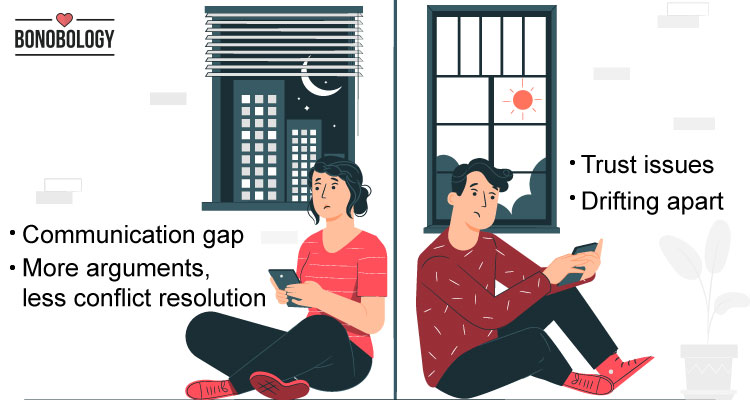



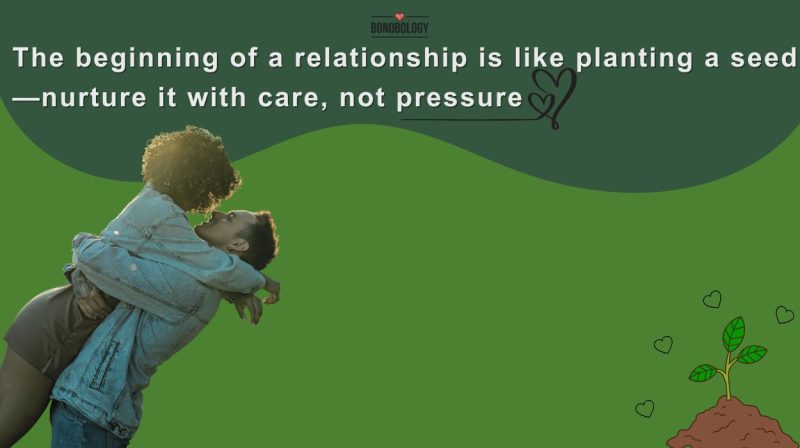
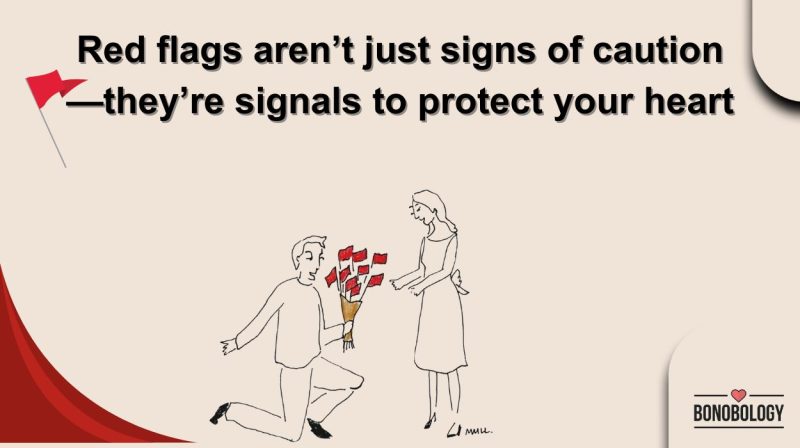




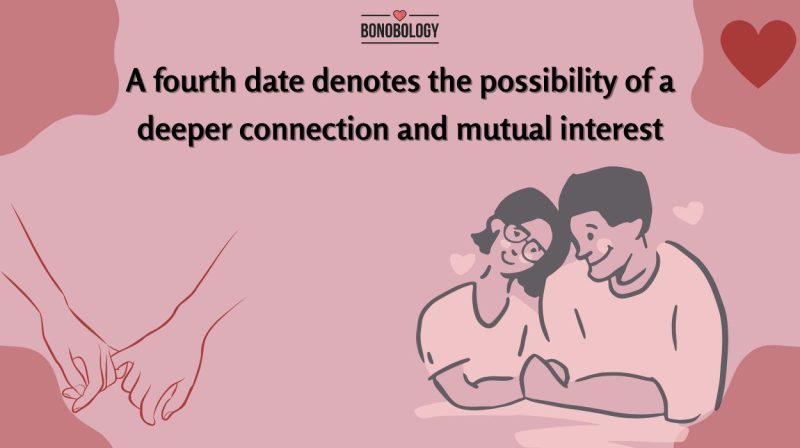

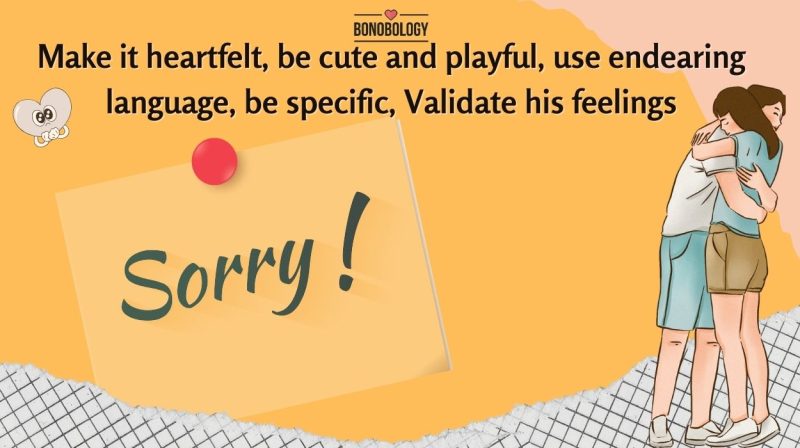









Featured
Why I Will Never Date A Widower Again—A Woman’s Story
How Long Should You Date Before Getting Engaged
Dating Guide: 9 Things To Never Do In The First Month Of Dating
11 Red Flags When Dating A Separated Man | Don’t Ignore These
152 Most Stupid Pickup Lines of All Time | AVOID THESE At All Costs
21 Clear Signs Of Unspoken Attraction Between Two People
How To Compliment A Guy: Tips And Examples
How To Comfort Your Girlfriend: 15 Simple Tips (With Examples)
Your Guide To Getting The Fourth Date Right
15 Delightful Signs The Talking Stage Is Going Well
How To Say Sorry To Your Boyfriend Through Text
My Girlfriend Rejected My Proposal: What Should I Do?
When And How To Ask For A Second Date
How To Get Over Infatuation: 17 Psychological Tricks
How To Talk Intimately With Your Boyfriend Over Text—15 Easy Ways
13 Red Flags When Dating An Older Man | Don’t Ignore These
100 Best Hinge Prompts With Answers For Instant Connections
What Does Taking A Break Mean To A Guy And How To Deal With It
Bumble Compliments: How To Use And What To Write
7 Early Signs Of A Highly Compatible Relationship